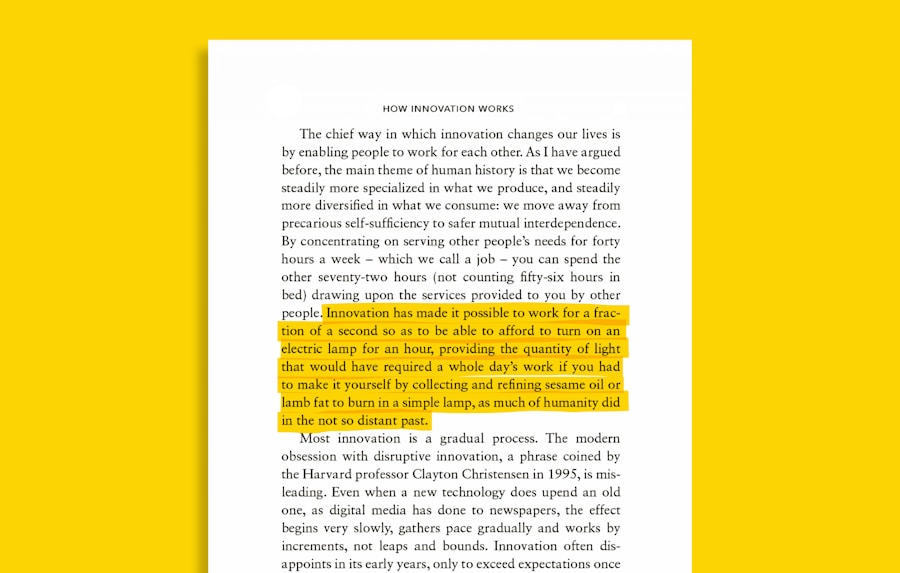“The Big Short,” directed by Adam McKay and released in 2015, is a cinematic adaptation of Michael Lewis’s non-fiction book that delves into the events leading up to the 2008 financial crisis. The film presents a complex narrative that intertwines the lives of several key players who foresaw the impending collapse of the housing market and the broader financial system. With a star-studded cast including Christian Bale, Steve Carell, Ryan Gosling, and Brad Pitt, the film not only entertains but also educates its audience about the intricacies of financial instruments like mortgage-backed securities and collateralized debt obligations.
By employing a unique storytelling approach that includes breaking the fourth wall and using celebrity cameos to explain complicated financial concepts, “The Big Short” makes an otherwise dense subject accessible to a wider audience. The film’s significance extends beyond its box office success; it serves as a critical commentary on the systemic failures within the financial industry and the regulatory bodies that were supposed to oversee it. By focusing on the individuals who recognized the signs of an impending disaster, “The Big Short” highlights the moral and ethical dilemmas faced by those who profited from the crisis while also exposing the negligence of major financial institutions.
The film’s blend of humor, drama, and stark reality invites viewers to reflect on the consequences of unchecked greed and the fragility of economic systems, making it a pivotal work in contemporary cinema.
Key Takeaways
- “The Big Short” is a film that explores the events leading up to the 2008 financial crisis and the individuals who predicted and profited from the housing market collapse.
- The 2008 financial crisis was a global economic downturn caused by the collapse of the housing market, leading to widespread job losses, foreclosures, and a significant impact on the global economy.
- The film follows the stories of several characters, including Michael Burry, Mark Baum, and Jared Vennett, who foresaw the housing bubble and bet against the market, ultimately profiting from the crisis.
- The housing bubble refers to the rapid increase in housing prices fueled by risky lending practices, subprime mortgages, and the securitization of these mortgages, which ultimately led to a market crash.
- Wall Street and the financial industry played a significant role in the 2008 financial crisis, with banks and financial institutions engaging in risky lending practices and creating complex financial products that contributed to the collapse.
- “The Big Short” had a significant impact on raising awareness about the 2008 financial crisis and the individuals who predicted it, shedding light on the systemic issues within the financial industry.
- The film has faced criticisms and controversies for its portrayal of the events leading up to the financial crisis, with some arguing that it oversimplified complex financial concepts and downplayed the human impact of the crisis.
- The legacy of “The Big Short” lies in its lasting impact on public perception of the financial industry and the events leading up to the 2008 financial crisis, sparking conversations about financial reform and accountability.
The 2008 Financial Crisis
The 2008 financial crisis was a watershed moment in global economic history, characterized by a severe downturn that led to widespread unemployment, foreclosures, and a loss of consumer confidence. At its core, the crisis was precipitated by a combination of factors, including lax lending standards, speculative investment practices, and an over-reliance on complex financial products that obscured risk. The housing market, which had been experiencing rapid growth fueled by easy credit and subprime mortgages, became unsustainable as housing prices peaked and began to decline.
This decline triggered a domino effect that reverberated throughout the financial system, leading to the collapse of major institutions like Lehman Brothers and prompting government bailouts for others deemed “too big to fail.” The crisis was not merely an American phenomenon; it had global implications that affected economies around the world. Financial markets froze, credit became scarce, and consumer spending plummeted. The interconnectedness of global finance meant that problems in the U.S.
housing market quickly spread to Europe and beyond, resulting in a worldwide recession. Governments and central banks were forced to intervene with unprecedented measures, including interest rate cuts and quantitative easing, in an attempt to stabilize their economies. The fallout from the crisis led to widespread public outrage and calls for regulatory reform, as many citizens felt betrayed by the very institutions that were supposed to protect them.
The Characters and their Stories

“The Big Short” introduces viewers to a diverse cast of characters, each representing different facets of the financial industry and its response to the impending crisis. One of the most compelling figures is Michael Burry, portrayed by Christian Bale, a hedge fund manager who was among the first to recognize the flaws in the housing market. Burry’s character is depicted as socially awkward yet brilliant; he meticulously analyzed mortgage-backed securities and identified that many were backed by subprime loans destined for default.
His decision to bet against these securities through credit default swaps not only showcased his foresight but also highlighted the risks he was willing to take in a system that many others blindly trusted. Another key character is Mark Baum, played by Steve Carell, who leads a team at FrontPoint Partners. Baum’s journey is marked by his growing disillusionment with Wall Street’s practices as he uncovers the extent of corruption and negligence within the financial system.
His character embodies the moral outrage felt by many during this period; he is driven not just by profit but by a desire to expose the truth behind the façade of stability that Wall Street presented. The film also features Jared Vennett (Ryan Gosling), a slick trader who capitalizes on Burry’s insights and helps bring together various investors to bet against the housing market. Each character’s story intertwines with broader themes of greed, ignorance, and ethical responsibility, creating a rich tapestry that illustrates the complexities of the financial crisis.
The Housing Bubble
The housing bubble that preceded the 2008 financial crisis was characterized by an unsustainable increase in housing prices driven by speculative investment and easy access to credit. During the early 2000s, low-interest rates and aggressive lending practices led to a surge in home purchases, with many buyers taking on subprime mortgages—loans offered to individuals with poor credit histories or insufficient income verification. This influx of risky loans was further exacerbated by financial institutions packaging these mortgages into complex securities that were sold to investors as safe investments.
The illusion of security was bolstered by credit rating agencies that assigned high ratings to these products, despite their underlying risks. As housing prices continued to rise, more individuals entered the market, often purchasing homes they could not afford under normal circumstances. This speculative behavior created an artificial demand that inflated prices beyond their intrinsic value.
When prices peaked and began to decline in 2006, homeowners found themselves underwater—owing more on their mortgages than their homes were worth. This led to a wave of foreclosures that not only devastated individual families but also triggered a broader collapse in housing prices. The film illustrates this phenomenon through various vignettes that depict both the euphoria of homeownership during the bubble and the despair that followed its burst.
Wall Street and the Financial Industry
Wall Street serves as both a symbol and a microcosm of the financial industry’s excesses leading up to the 2008 crisis. The culture within major investment banks prioritized short-term profits over long-term stability, fostering an environment where risky behavior was not only tolerated but encouraged. Financial instruments such as mortgage-backed securities and collateralized debt obligations became increasingly complex, often obscuring their true risk profiles from investors and regulators alike.
This complexity allowed banks to offload risk while reaping substantial profits from fees associated with these products. The film portrays Wall Street as a place where greed reigned supreme, with traders and executives often prioritizing personal gain over ethical considerations. The characters in “The Big Short” navigate this treacherous landscape, revealing how systemic failures—such as inadequate regulatory oversight and conflicts of interest—contributed to the crisis.
For instance, investment banks were incentivized to create more mortgage-backed securities without fully understanding or disclosing their risks. This lack of transparency ultimately led to catastrophic consequences when defaults began to rise, exposing not only individual investors but also entire financial institutions to unprecedented losses.
The Impact of The Big Short

“The Big Short” has had a significant impact on public discourse surrounding finance and economics since its release. By dramatizing real events and presenting complex financial concepts in an engaging manner, it has sparked conversations about accountability within the financial industry and the need for regulatory reform. The film’s success at the Academy Awards—winning Best Adapted Screenplay—further solidified its status as an important cultural artifact that sheds light on one of the most significant economic events in recent history.
Moreover, “The Big Short” has influenced how audiences perceive Wall Street and its role in society. By humanizing characters who took risks based on their convictions while exposing systemic flaws, it encourages viewers to question established narratives about capitalism and economic stability. The film serves as both a cautionary tale about unchecked greed and a call for greater transparency in financial markets.
Its impact extends beyond entertainment; it has become a reference point for discussions about economic inequality and corporate responsibility in contemporary society.
Criticisms and Controversies
Despite its acclaim, “The Big Short” has faced criticisms regarding its portrayal of events and characters involved in the financial crisis. Some critics argue that while it effectively highlights systemic issues within Wall Street, it oversimplifies complex realities for dramatic effect. For instance, certain characters are depicted in ways that may exaggerate their roles or motivations, potentially leading audiences to misunderstand the multifaceted nature of the crisis.
Additionally, some have pointed out that while the film emphasizes individual foresight and moral outrage, it may downplay broader systemic issues such as regulatory failures or societal complicity in fostering a culture of risk-taking. Another point of contention is how “The Big Short” addresses issues of accountability among those who contributed to the crisis. While it showcases characters who profited from betting against failing securities, it does not delve deeply into the consequences faced by major financial institutions or their executives after the crisis unfolded.
Critics argue that this omission may inadvertently suggest that individuals can escape accountability while systemic issues remain unaddressed. Furthermore, some viewers have expressed concern that the film’s focus on individual stories may detract from understanding how collective actions—or inactions—contributed to one of history’s most significant economic downturns.
The Legacy of The Big Short
The legacy of “The Big Short” lies not only in its artistic achievements but also in its role as a catalyst for ongoing discussions about finance, ethics, and accountability in modern capitalism. By bringing attention to the complexities of financial markets and exposing systemic flaws within them, it has encouraged audiences to engage critically with economic issues that affect their lives. The film serves as a reminder of how easily trust can be eroded when institutions prioritize profit over responsibility.
In addition to influencing public discourse, “The Big Short” has inspired further exploration into topics such as economic inequality and regulatory reform. It has prompted viewers to consider how lessons from past crises can inform future policies aimed at preventing similar disasters. As discussions about wealth disparity continue to gain traction globally, “The Big Short” remains relevant as both an educational tool and a cultural touchstone that challenges audiences to reflect on their roles within an interconnected economic system.
Its impact endures as society grapples with questions about accountability, transparency, and ethical behavior in finance—a testament to its significance beyond mere entertainment.
If you enjoyed reading The Big Short by Michael Lewis, you may also be interested in checking out this article on hellread.com that delves into the world of finance and investment. The article provides insights and analysis on current market trends and offers valuable information for those looking to navigate the complex world of finance. It is a great companion piece to Lewis’s book, offering a fresh perspective on the financial industry.
FAQs
What is The Big Short about?
The Big Short is a non-fiction book by Michael Lewis that explores the build-up of the housing and credit bubble during the 2000s that led to the financial crisis of 2007-2008.
Who is the author of The Big Short?
The Big Short was written by Michael Lewis, a well-known author and financial journalist.
When was The Big Short published?
The Big Short was first published in 2010.
What is the main focus of The Big Short?
The main focus of The Big Short is on the individuals and groups who saw the impending financial crisis and bet against the housing market, ultimately profiting from the collapse.
Is The Big Short a movie?
Yes, The Big Short was adapted into a film in 2015, directed by Adam McKay and starring Christian Bale, Steve Carell, Ryan Gosling, and Brad Pitt.
What are some key themes in The Big Short?
Some key themes in The Big Short include the complexities of the financial system, the impact of greed and hubris, and the consequences of unchecked risk-taking in the financial industry.







